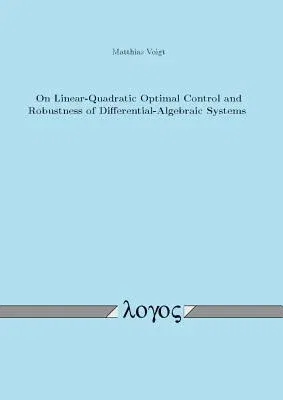This thesis considers the linear-quadratic optimal control problem for
differential-algebraic systems. In this first part, a complete
theoretical analysis of this problem is presented. The basis is a new
differential-algebraic version of the Kalman-Yakubovich-Popov (KYP)
lemma. One focus is the analysis of the solution structure of the
associated descriptor KYP inequality. In particular, rank-minimizing,
stabilizing, and extremal solutions are characterized which gives a deep
insight into the structure of the problem. Further contributions include
new relations of the descriptor KYP inequality to structured matrix
pencils, conditions for the existence of nonpositive solutions, and the
application of the new theory to the characterization of dissipative
systems and the factorization of rational matrix-valued functions. The
second part of this thesis focuses on robustness questions, i.e., the
influence of perturbations on system properties like dissipativity and
stability is discussed. Characterizations for the distance of a
dissipative systems to the set of non-dissipative systems are given
which lead to a numerical method for computing this distance.
Furthermore, the problem of computing the H-infinity-norm of a
large-scale differential-algebraic system is considered. Two approaches
for this computation are introduced and compared to each other.

